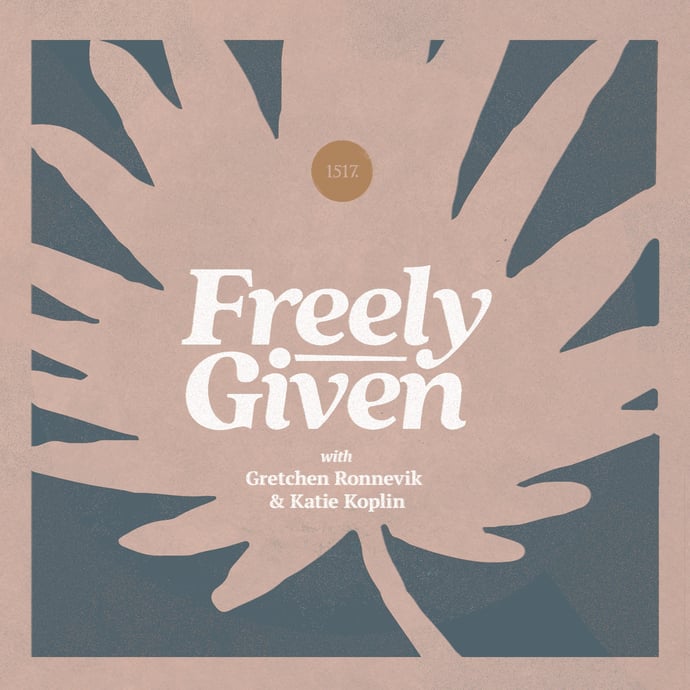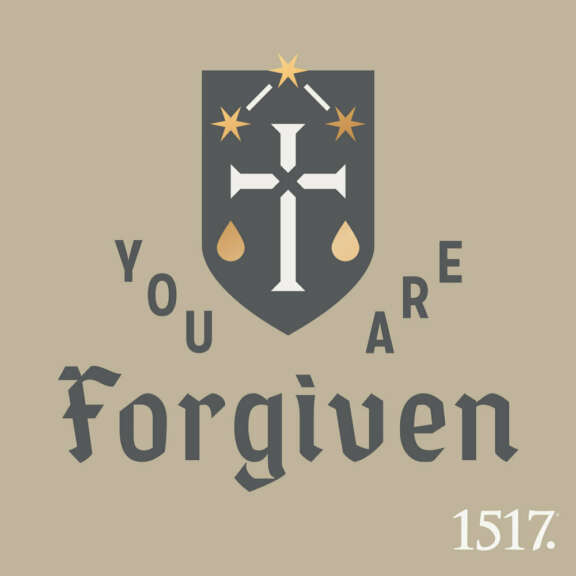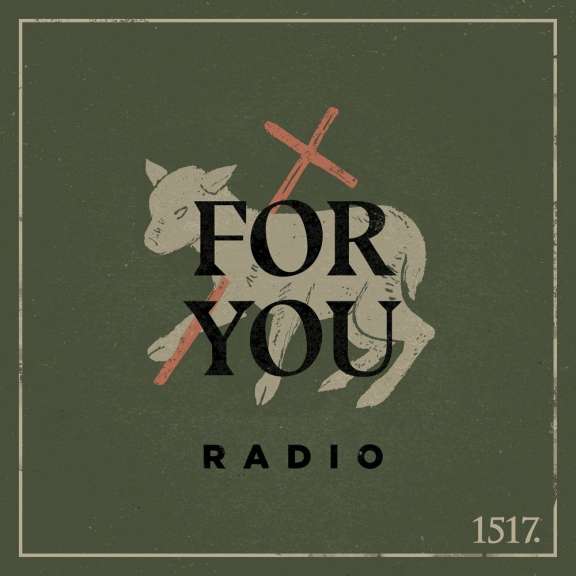1517 Contributor and pastor, Bradley Gray, joins Kelsi to talk about his incredible book, Finding God in the Darkness: Hopeful Reflections from the Pit of Depression, Despair, and Disappointment, and specifically, how he sees God responding to suffering throughout Scripture.
Podcasts
Each 1517 Podcast is dedicated to delivering Christ-centered content through weekly, monthly, and seasonal audio platforms. Listen online or on your favorite podcasting app.
Author
- All Authors
- Aaron Zimmerman
- Adam Francisco
- Amy Mantravadi
- Blake Flattley
- Bob Hiller
- Bradley Gray
- Brian W. Thomas
- Bror Erickson
- Bruce Hillman
- Caleb Keith
- Chad Bird
- Chris Rosebrough
- Christopher Gillespie
- Cindy Koch
- Craig Donofrio
- Dan van Voorhis
- Daniel Deen
- Daniel Emery Price
- Darrin Sheek
- David Andersen
- David Rufner
- David Zahl
- Debi Winrich
- Delwyn Campbell
- Donavon Riley
- Doug Klembara
- Edward Killian
- Elyse Fitzpatrick
- Erick Sorensen
- Flame
- Grant Klembara
- Gretchen Ronnevik
- Haroldo Camacho
- Jacob Smith
- Jared C. Wilson
- Jeff Mallinson
- Jeffrey Pulse
- Jessica Thompson
- Jim Nestingen
- Joel Fitzpatrick
- Joel Hess
- John Andrew Schreiner
- John Bombaro
- John T. Pless
- John W. Hoyum
- John Warwick Montgomery
- Katie Koplin
- Kelsi Klembara
- Ken Sundet Jones
- Magnus Persson
- Matt Popovits
- Michael Berg
- Michael Horton
- Nick Lannon
- Paul Koch
- Peter Nafzger
- Philip Bartelt
- Raleigh Sadler
- RJ Grunewald
- Robert Kolb
- Rod Rosenbladt
- Ron Hodel
- Sam Leanza Ortiz
- Sarah Condon
- Sarah Crowder
- Scott Davis
- Scott Keith
- Steven Paulson
- Tanner Olson
- Troy Neujahr
- Uwe Siemon-Netto
- Wade Johnston
- William Cwirla
-
We've found Katie Koplin, in the midst of moving into an old church, and working on her training to become a Christian counselor.
-
Pastor Sheek Teaches On Mark 3:20-35
-
In this episode, Kelsi interviews Dr. Robert Kolb about his newest book, Face to Face: Luther's View of Reality.
-
Watching The World Go Down in History. In this episode of Banned Books, we read "False Presence of the Kingdom" by Jacques Ellul and discuss worldly Christianity, the lessons of history, the Machine, focusing on heavenly things to answer earthly questions, seeking the origin of things, and the dangers of being trapped in the present.
-
Encore presentation: Steve Lownes returned to the studio to help Craig and Troy work out their relationship, but instead we end up talking more about the intersection of theology and therapy.
-
Encore presentation: Therapist Steve Lownes joins Craig and Troy for a discussion on theology and therapy. How are they the same, and how are they different?
-
This week we are interviewing our friend, Pastor Brad Gray about his book He's one of the special Baptists who publish articles and books with 1517.
-
In episode TWO HUNDRED AND SIXTY-TWO, Jason, Wade and Mike discuss the need for a theology of suffering.
-
Sure Shot. In this episode of Banned Books, we read Rod Rosenbladt’s essay, Christ Died for the Sins of Christians Too. We talk about theological mentors, the Reformation, law and Gospel, justification, sanctification, the Church, and where we find our comfort at all times, in all places.
-
In this episode of Outside Ourselves, pastor and professor, Ken Jones, helps tackle the question, "What Does it Mean to Die a Good Death?"
-
We have Old Testament scholar, Chad Bird, on to discuss with us the ways we twist the book of Proverbs into a prosperity gospel, especially in regard to our ideas of family.





